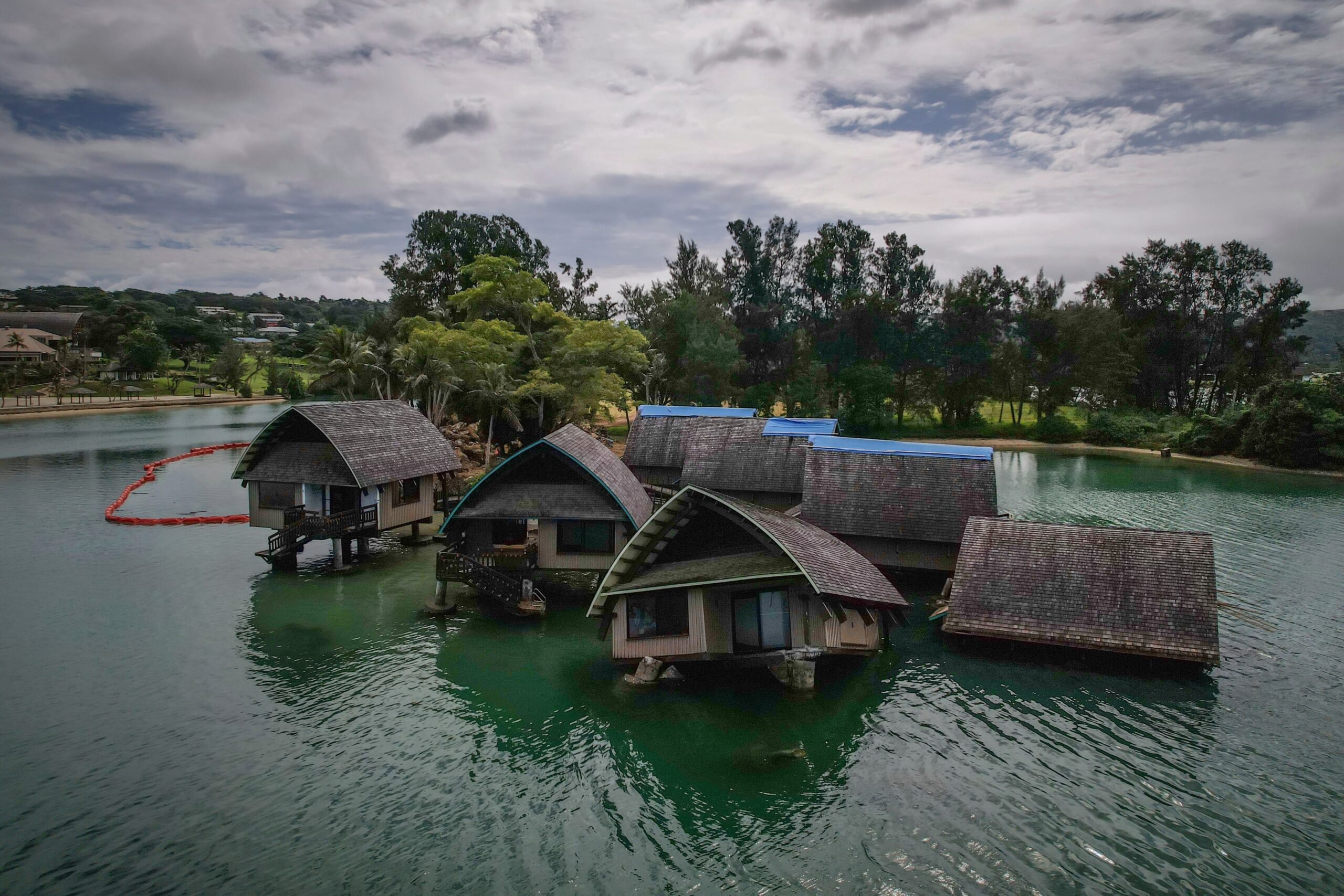A coral graveyard, bleached debris strewn across the ocean, collapsing habitats, and extinct life are all that are left. Warmington, who has made countless of dives on this one reef, stated, “We’ve come out of the water in tears.” All we see is heartbreak.
In this Pacific island nation, where cyclones are getting stronger, sea levels are rising, and saltwater intrusion is changing coastlines and endangering everyday life, heartbreak is becoming more frequent. Sea levels have increased by roughly 6 millimeters (.24 inches) annually since 1993, which is much faster than the global average. In certain places, tectonic activity has twice that rate.
International court to opine on nations’ obligations to address climate change
The world’s highest court will hear Vanuatu’s case on Wednesday. Regarding the legal duties that countries have to address climate change and the potential repercussions of failing to do so, the International Court of Justice will provide an advisory opinion. More than 130 nations support the Vanuatu-led case, which is viewed as potentially landmark for international climate law.
According to 16-year-old climate activist Vepaiamele Trief, it may be quite depressing and disheartening to watch big, polluting nations simply carry on with their daily operations without taking the climate catastrophe seriously. Everything may be different if they rule in our favor.
Although the view won’t have legal force behind it, it may influence future initiatives to hold big emitters responsible and to get small island nations the money and support they need to adapt or survive.
Pacific nations that have witnessed the loss of their homelands have been frustrated for decades. Over one-third of the people in Tuvalu, whose average elevation is only 2 meters (6.6 feet), have asked for a climate migration visa to Australia. A large portion of the nation is expected to be submerged under water at high tide by the year 2100. In an attempt to raise money for potential relocation initiatives, the government of Nauru has started selling passports to affluent foreigners that grant visa-free entry to dozens of nations.
Vanuatu’s climate change minister, Ralph Regenvanu, stated that the international accords between states are not proceeding quickly enough. They are clearly not being fulfilled in accordance with what science indicates is necessary.
Vanuatu is advocating for the International Criminal Court to recognize environmental damage, or ecocide, as a crime and has already asked other international courts for their opinions. Regenvanu stated that we must fight until the last end.
How climate change is decimating Vanuatu
Climate change is not a theory to Vanuatuan youngsters; rather, it is a classroom—or the absence of one.
Noellina Tavi, an elementary school teacher at Sainte Jeanne D Arc school on Efate Island, has been teaching her kids in tents for two of the past three years, first following the 2023 cyclones and then again after the 2024 earthquake.
Her class was merged with another due to a lack of emergency tents. Students become distracted and fidgety. “It’s too packed,” Tavi remarked. We are unable to operate in peace.
The tents get dirty and freezing when it rains. To prevent students from being ill, Tavi frequently sends them home. It is necessary to remove the tents, move the furniture to a shelter, and send the kids home whenever a storm is predicted. According to her, that interferes with their education for a whole week.
Extreme weather affects food security, which is even more fundamental in rural communities. Kaltang Laban, a farmer on Nguna Island, has seen cyclones destroy the taro, cassava, and banana crops that provide food for his people.
He claimed that we would be without anything for months following a cyclone. Laban and other farmers are now keeping preserved fruits and vegetables in a facility next to their grounds with the help of Save the Children. However, he noted that not all communities have this.
Small-scale farming is the main source of income for almost 70% of Vanuatu’s people, who reside in rural areas.
According to Vomboe Shem, climate lead for Save the Children Vanuatu, USAID discontinued funding for a rainwater gathering project in 2025 that was intended to increase water availability at cyclone evacuation centers in one of the nation’s most isolated and drought-prone areas. The project was put on hold, but the materials had already been transported and distributed.
Shem claimed that these catastrophes keep occurring. It is straining the boundaries of our communities.
According to Christina Shaw, CEO of the Vanuatu Environmental Science Society, not all of these effects can be directly attributed to climate change. Ecosystem degradation is also a result of pollution, deforestation, volcanic eruptions, coastal development, and tectonic sinking.
She claimed that because Vanuatu is a young country with narrow reefs, little topsoil, and frequent natural disasters, its ecology is naturally delicate. However, we also need to consider the numerous ways that humans affect the ecosystem.
Not just houses, gardens, and reefs are being harmed; areas that were previously believed to be invulnerable are now being affected.
Amos Kalsont, the local chief, sits at his brother’s tomb on the island of Pele while waves crash into damaged headstones that are partially covered in sand. His father’s and brother’s graves are only a few arm’s lengths from the sea at high tide. The community’s main source of drinking water has been contaminated by seawater intrusion, and several houses and gardens have already been relocated inland. The entire hamlet is currently being considered for relocation, although doing so would require abandoning the land that their grandparents laboriously cleared.
We’re at a loss for what to do as the sea closes in,” Kalsont remarked. We didn’t contribute to this in the first place, therefore it’s unfair that we must deal with the fallout.
In the hopes that the rest of the world will help them, many Vanuatuans are still dedicated to creating something more powerful.
According to Regenvanu, this is our future, especially the future of our children and grandkids. All we need to do is keep working toward the best one we can.
John Warmington continues to dive the reef in Havannah Harbor, which he views as a member of his family. He and his wife Sandy have started replanting coral shards in an attempt to restore what remains, even though a large portion of it has been lost.
He said, “Our friend is still here.” Life will return.
___
Annika Hammerschlag can be followed on Instagram at @ahammergram.
___
Several private foundations provide funding for the Associated Press’s coverage of the environment and climate. All content is the exclusive responsibility of AP. At AP.org, you may see a list of supporters, funded coverage areas, and AP’s rules for working with philanthropies.
Thanks to AP
Thanks to AP
Thanks to AP
Thanks to AP
Thanks to AP
Thanks to AP
Thanks to AP
Thanks to AP
Thanks to AP
Thanks to AP
Thanks to AP
Thanks to AP
Thanks to AP
Thanks to AP
Thanks to AP
Thanks to AP
Thanks to AP
Thanks to AP
Thanks to AP
Thanks to AP
Thanks to AP
Thanks to AP
Thanks to AP
Thanks to AP
Thanks to AP
Thanks to AP
Thanks to AP
Thanks to AP
Thanks to AP
Thanks to AP
Thanks to AP
Thanks to AP
Thanks to AP
Thanks to AP






